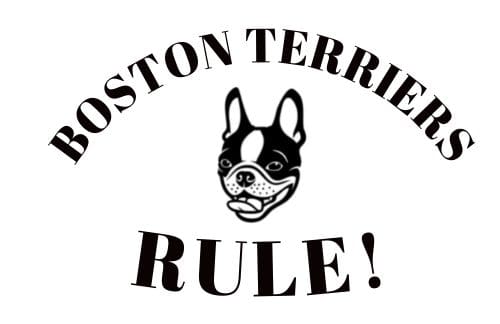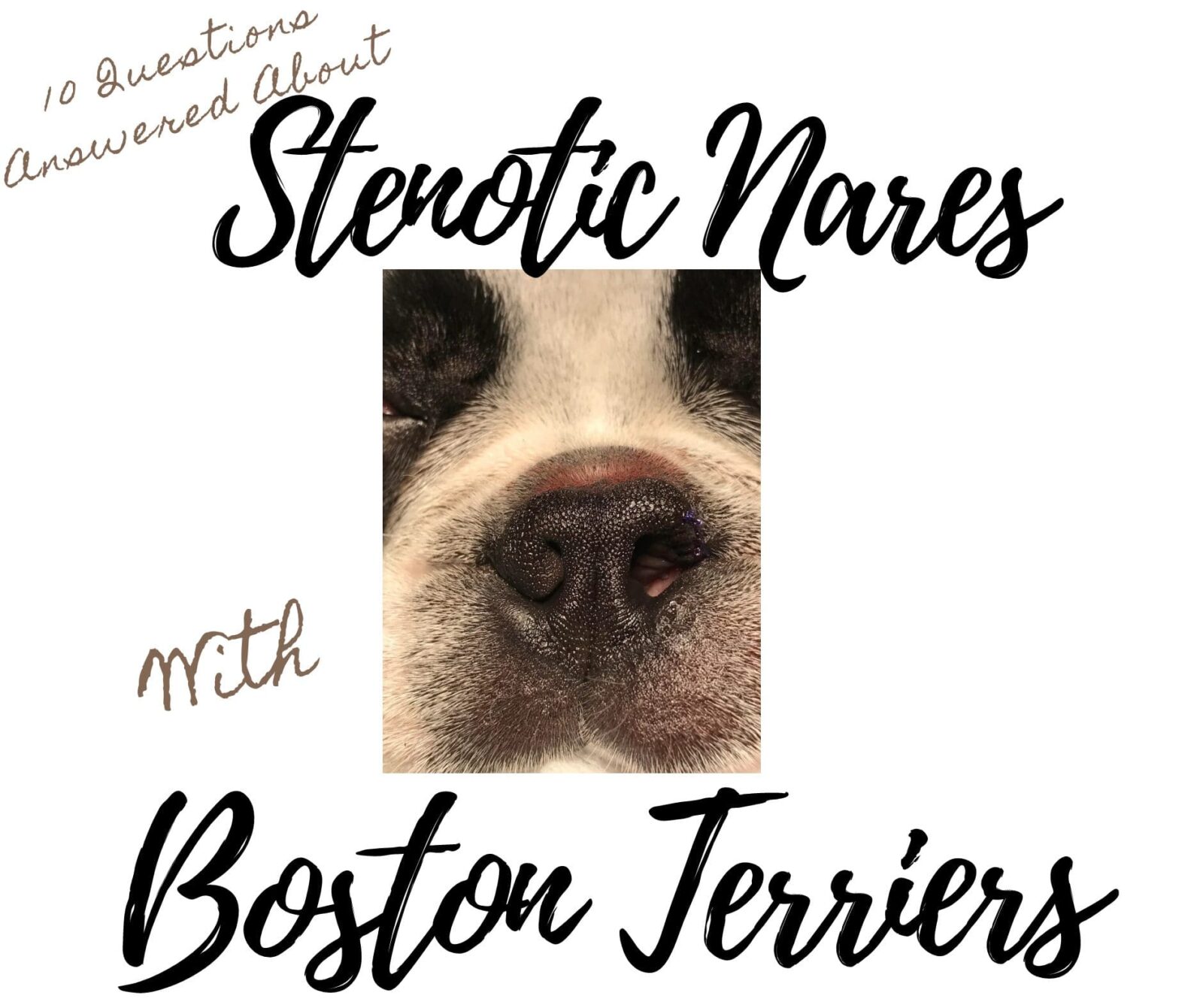Introduction
Boston Terriers are charismatic dogs that make excellent companions throughout their lives, but as they age, their dietary needs evolve. In this blog post, we’ll discuss the average lifespan of Boston Terriers, explore when they are considered seniors, as well as the reasons behind the shift in their diet requirements.
Additionally, we’ll highlight key considerations when choosing senior dog food and explore some beneficial add-ins from the human kitchen that can enhance the well-being of older Boston Terriers. If you’d like to read more about Boston Terrier diets at any life stage click here – or more about Super (Power) Food add-ins click here.
The Life Cycle of a Boston Terrier
Boston Terriers, often affectionately called “Bostons,” are a small breed known for their friendly nature and adaptability. On average, these dogs have a lifespan of 11 to 13 years. However, factors such as genetics, overall health, and lifestyle can influence an individual Boston Terrier’s longevity. I could never get more than 10 years from each of my Bostons, however I’ve heard of some living as long as 15+ years.
What is the oldest Boston Terrier on Record?
Well, this is up for debate, as determining the oldest Boston Terrier is contentious; conflicting reports suggest ages ranging from 21 to 36. Yet, none are officially recognized by a body like Guinness World Records. While some sources showcase a 20-year-old Boston Terrier, credible accounts of such longevity remain scarce. The claim of a 36-year-old Boston Terrier, in particular, surpasses recorded dog lifespans, prompting skepticism.

Senior Status: When is a Boston Terrier Considered Old?
As a general rule, Boston Terriers are considered seniors when they reach the age of 7 or 8. This milestone varies slightly between individual dogs, as smaller breeds like Bostons tend to age more slowly than larger breeds. Recognizing when a Boston Terrier enters its senior years is crucial for providing the appropriate care, including adjusting its diet to address changing nutritional requirements.
Changing Diet Needs in Senior Boston Terriers
Just like humans, Boston Terriers experience physiological changes as they age. These changes impact their metabolism, energy levels, and overall health. Consequently, adjusting their diet becomes essential to ensure they receive the necessary nutrients to maintain vitality and prevent age-related health issues.
Reduced Metabolism and Energy Levels
As Boston Terriers age, their metabolism tends to slow down, leading to a decrease in energy levels. This shift in metabolic rate means that senior Bostons require fewer calories than their younger counterparts. Failure to adjust their diet accordingly can result in weight gain, which puts additional strain on their joints and increases the risk of obesity-related health problems.
Joint and Muscle Health
Senior Boston Terriers are more prone to joint issues such as arthritis. To support joint health, their diet should include ingredients like glucosamine and chondroitin, known for their joint-supporting properties. Additionally, maintaining an appropriate weight is crucial to reduce stress on joints and muscles.
Digestive Health
Aging can sometimes bring digestive challenges for Boston Terriers. Senior dogs may experience a decrease in digestive enzyme production, making it harder for them to absorb nutrients from their food. A diet rich in easily digestible proteins and fiber can help address these concerns and promote optimal digestive health.

What Ingredients Should Be Avoided in Dog Food for Senior Boston Terriers?
Choosing the right dog food for senior Boston Terriers involves not only looking for beneficial ingredients, but also avoiding certain components that may be detrimental to their health. Here are some ingredients that should be avoided or approached with caution when selecting food for senior Boston Terriers:
Excessive Fat:
While some fats are essential for a dog’s diet, excessive fat content can contribute to obesity, which is a common concern in senior dogs. Opt for dog foods with moderate fat levels to support overall health without risking weight gain.
High Calorie Content:
Senior Boston Terriers generally have lower energy requirements, so a dog food with excessively high-calorie content can lead to weight gain. Look for formulations specifically designed for senior dogs to ensure appropriate calorie levels.
Artificial Preservatives, Colors, and Flavors:
Artificial additives, such as preservatives, colors, and flavors, can be harsh on a dog’s digestive system and may contribute to allergic reactions. Opt for dog foods with natural preservatives, and avoid those with unnecessary artificial additives.
Excessive Phosphorus:
High levels of phosphorus can strain the kidneys, and senior dogs are more susceptible to kidney issues. Choose dog foods with controlled phosphorus levels to support kidney health in aging Boston Terriers.
Excessive Sodium:
Too much sodium can contribute to high blood pressure and exacerbate heart issues, which are more common in senior dogs. Select dog foods with limited sodium content to promote cardiovascular health.
Fillers and By-Products:
Some dog foods may contain fillers, such as corn or wheat, and by-products, which are less nutritionally dense. Opt for high-quality dog foods that prioritize real meat and nutrient-rich ingredients over fillers and by-products.
Allergenic Ingredients:
Senior dogs may develop sensitivities or allergies over time. Monitor your Boston Terrier for any signs of allergies or intolerances, and avoid dog foods containing ingredients known to trigger adverse reactions.
Too Much Protein:
While protein is essential, excessive protein levels can strain the kidneys in older dogs. Choose a senior dog food with moderate, easily digestible protein sources to support muscle maintenance without overloading the kidneys.
Lack of Joint-Supporting Nutrients:
Senior Boston Terriers are prone to joint issues, so it’s crucial to choose a dog food that includes joint-supporting nutrients like glucosamine and chondroitin sulfate. Avoid dog foods that lack these essential components for joint health.
Unregulated or Poor-Quality Ingredients:
Be cautious about dog foods with unclear ingredient sourcing or those lacking quality control measures. Opt for brands that prioritize transparency and use high-quality ingredients.
Always consult with your veterinarian to determine the specific dietary needs of your senior Boston Terrier. Every dog is unique, and individual health conditions or sensitivities may require tailored nutritional plans. Regular veterinary check-ups and open communication with your vet can help ensure that your senior Boston Terrier receives the best possible dietary care.

Choosing the Right Senior Dog Food
Selecting the right dog food for a senior Boston Terrier is a key aspect of their overall care. Here are some considerations to keep in mind when choosing senior dog food:
Protein Content
While senior dogs may require fewer calories, maintaining an adequate protein intake is essential for muscle maintenance and overall health. Look for senior dog foods with high-quality, easily digestible protein sources, such as chicken or fish.
Joint-Supporting Ingredients
To promote joint health, opt for dog foods that contain glucosamine and chondroitin sulfate. These compounds are known for their ability to support cartilage and reduce the risk of arthritis in aging dogs.
Controlled Calorie Content
Senior dogs are prone to weight gain, so choosing a dog food with controlled calorie content is crucial. This helps prevent obesity and its associated health issues, ensuring that your Boston Terrier remains active and happy in its senior years.
Omega-3 Fatty Acids
Omega-3 fatty acids, found in fish oil, play a crucial role in maintaining healthy skin, coat, and joints. Including a source of omega-3 fatty acids in your senior Boston Terrier’s diet can contribute to its overall well-being.
Limited Phosphorus and Sodium
Senior dogs, especially those with kidney issues, benefit from a diet that is lower in phosphorus and sodium. These modifications can help support kidney function and maintain optimal blood pressure levels.

Healthy Human Food Add-Ins for Older Boston Terriers
In addition to providing a well-balanced commercial dog food, incorporating certain human foods into your senior Boston Terrier’s diet can offer additional health benefits. Here are some safe and nutritious add-ins to consider:
Cooked Lean Meat
Lean meats, such as cooked chicken or turkey, can be a healthy and tasty addition to your senior Boston Terrier’s diet. Ensure the meat is free from spices, seasonings, and bones before serving.
Vegetables
Vegetables like carrots, peas, and green beans are low in calories and high in fiber, making them excellent choices for older dogs. These vegetables can be cooked and added to your Boston Terrier’s meals for an extra nutrient boost.
Blueberries
Rich in antioxidants, blueberries can contribute to your senior Boston Terrier’s overall health. These tasty berries can be served fresh or frozen as a delightful and nutritious treat.
Pumpkin
Pumpkin is a great source of fiber and can aid in digestive health. It’s particularly useful if your senior Boston Terrier experiences occasional constipation. Ensure the pumpkin is plain and free from added sugars or spices.
Yogurt
Plain, unsweetened yogurt is a good source of probiotics, which can support digestive health. However, it’s essential to ensure your Boston Terrier tolerates dairy well before incorporating yogurt into their diet.

Conclusion
As Boston Terriers gracefully age, adjusting their diet becomes a key component of maintaining their health and well-being. Recognizing when a Boston Terrier enters its senior years, understanding the changes in its metabolism and energy levels, and selecting the right senior dog food are essential steps in providing optimal care. Additionally, incorporating safe and nutritious human food add-ins can be a delightful way to enhance the nutritional profile of your senior Boston Terrier’s meals. By prioritizing their evolving dietary needs, you can ensure that your beloved Boston Terrier enjoys a happy, healthy, and comfortable senior life.

This post contains affiliate links. I earn from qualifying Amazon purchases.




